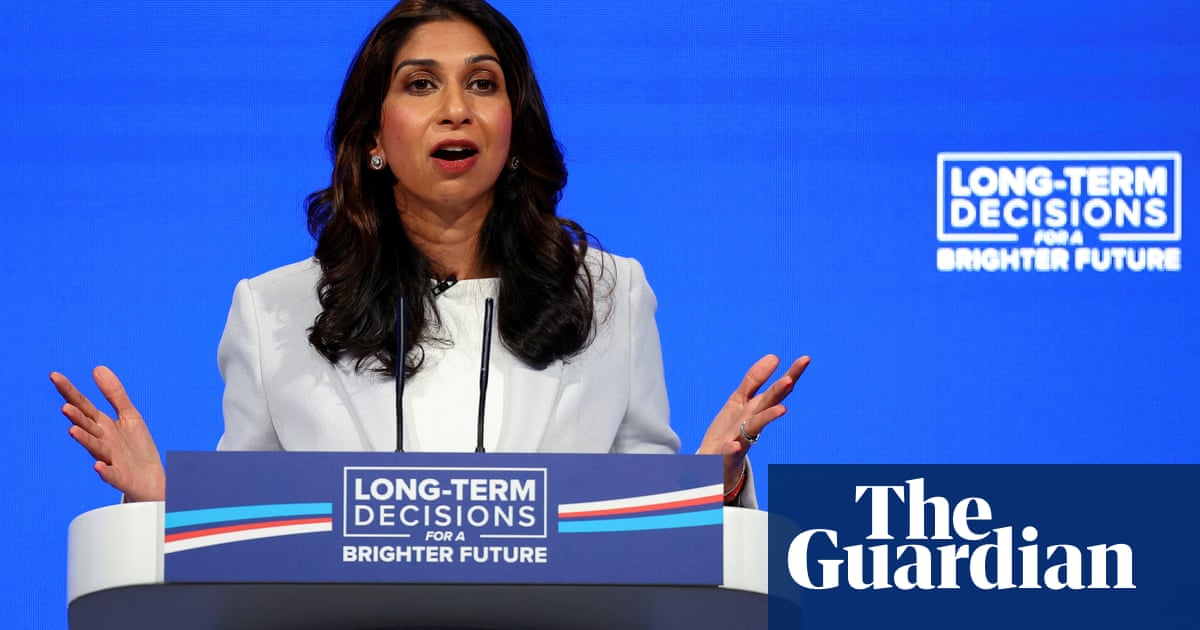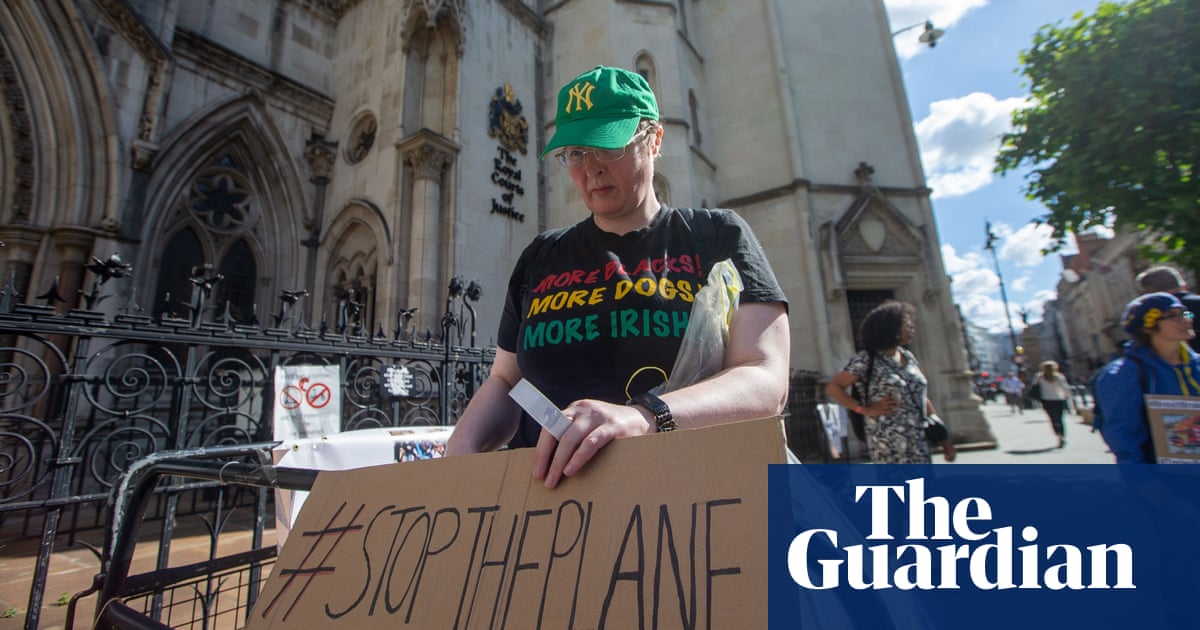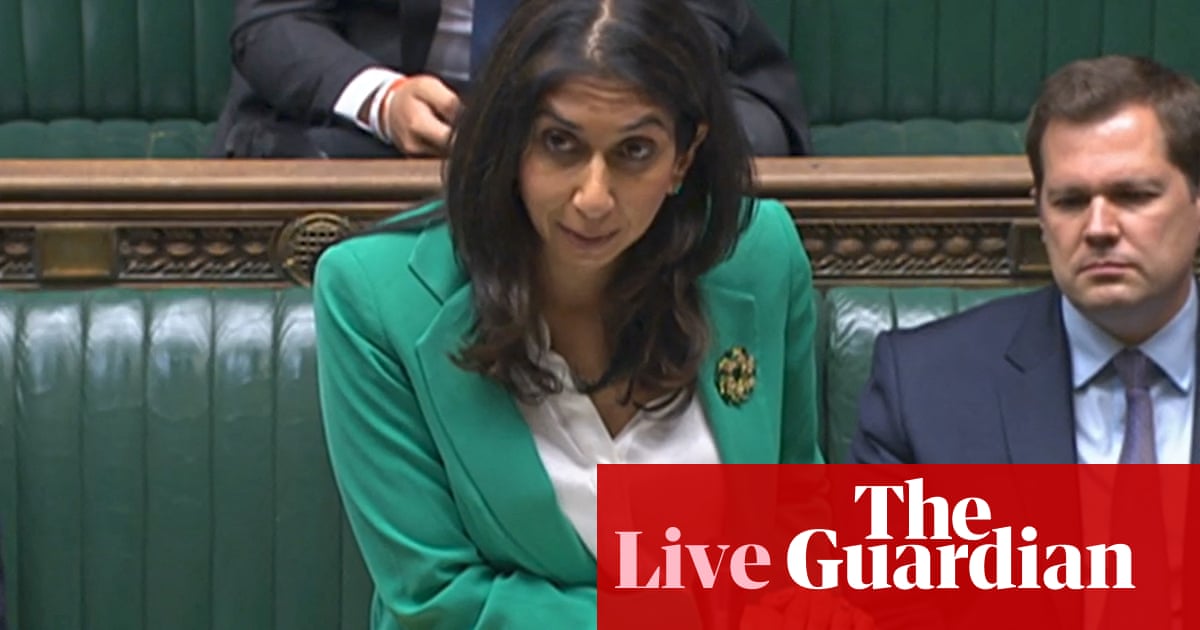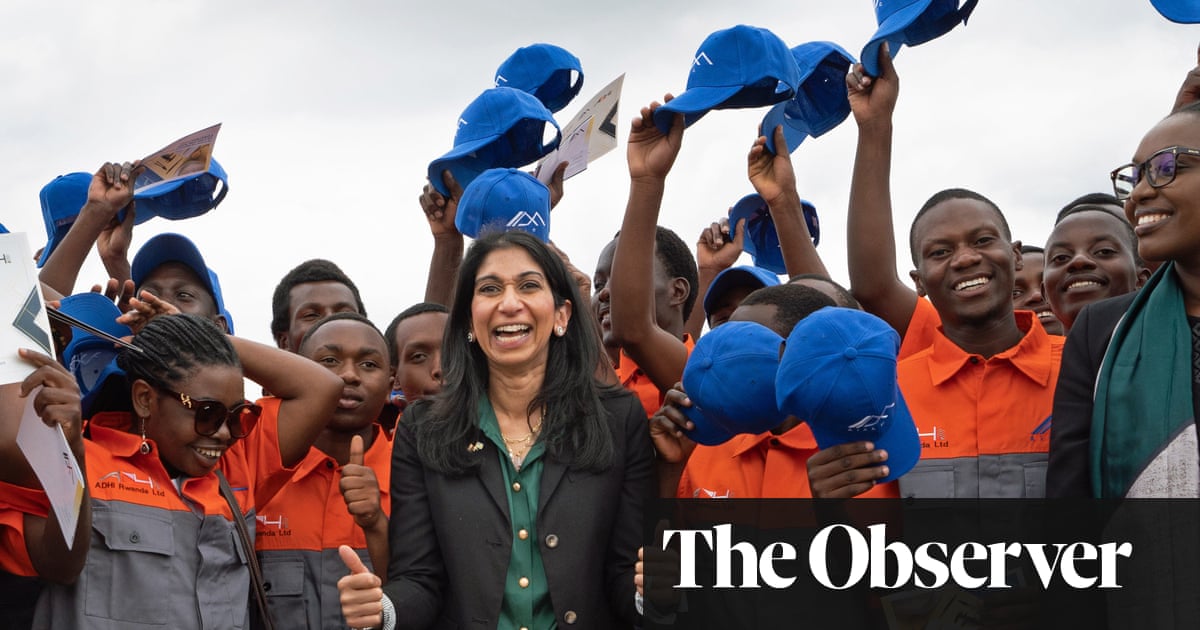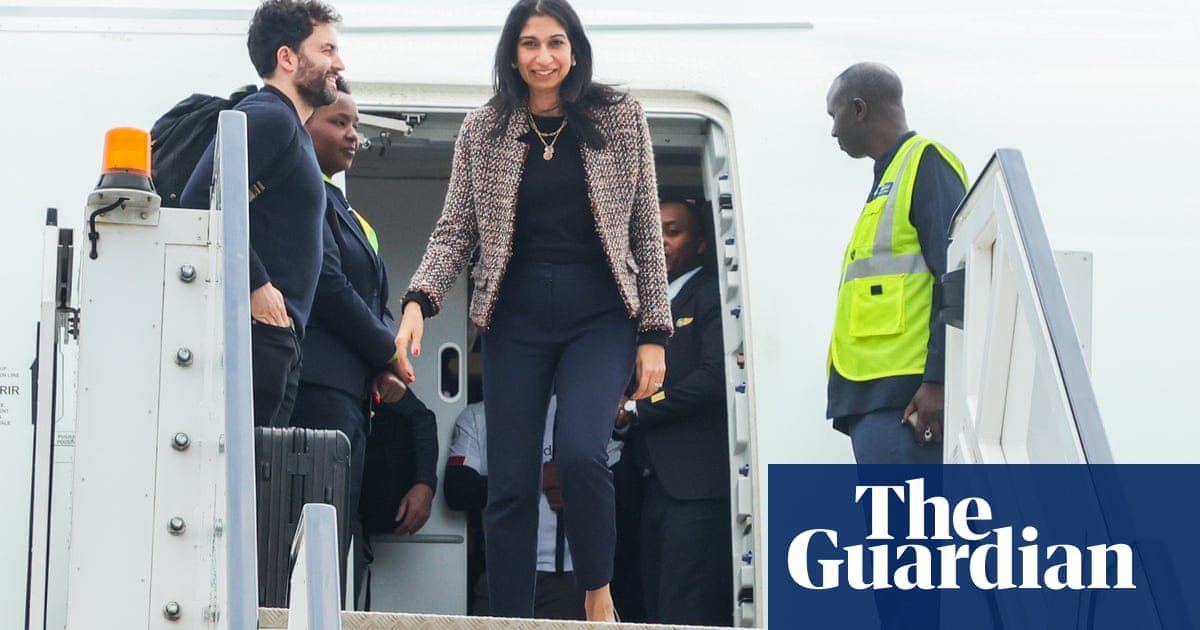
Suella Braverman has made her first trip to Rwanda as home secretary amid criticism that the Guardian, other liberal newspapers and the BBC were not invitedon the publicly funded visit.
Before the trip on Friday, Braverman said her controversial policy to deport asylum seekers to the African country “will act as a powerful deterrent against dangerous and illegal journeys”.
Her predecessor, Priti Patel, signed an agreement with Rwanda in April last year in an effort to deter small boat crossings in the Channel, but the £140m deal remains embroiled in legal battles.
The charity Freedom from Torture labelled it a “showboat trip” after it emerged that the Guardian, the BBC, the Daily Mirror, the Independent and the i newspaper were not invited. The home secretary will be accompanied by journalists from organisations including GB News, the Daily Mail and the Telegraph.
The BBC later requested and was given accreditation for a crew from the regional BBC bureau to attend on the ground.
Sonya Sceats, the chief executive at Freedom from Torture, described the policy as a “cash-for-humans” scheme.
She said: “Braverman is jetting off on a showboat trip to Rwanda the very week that the court of appeal has accepted that there are serious questions to be answered over the legality of this government’s cash-for-humans scheme.
“Following the outpouring of support for Gary Lineker and his compassionate stand on behalf of refugees, this government knows it is on the back foot and is once again ramping up the cruelty to distract from their own failures.”
Index on Censorship, which works to defend freedom of expression, also criticised the exclusion of some news organisations. Its editor at large, Martin Bright, said: “We are concerned to hear that journalists from organisations judged to be critical of the government’s immigration policy have not been invited … Democracy depends on an open and transparent relationship between government and the media, where all journalists are able to scrutinise the government.
“Index on Censorship believes that access to government ministers, both domestically and as part of international visits, should not be treated as a reward for favourable coverage.”
In a statement, Guardian News and Media said: “We are deeply concerned to learn that – once again – journalists from the Guardian and other news organisations appear to have been excluded from reporting on a taxpayer-funded trip to Rwanda to discuss a flagship government policy.
“Excluding journalists who provide scrutiny of key policies is not only damaging to press freedom, which the UK government claims to champion, but may also contravene the government’s own propriety guidance on dealing impartially and evenhandedly with members of the media.
“We have written to the Home Office permanent secretary to ask for an explanation of how this has happened.”
A Home Office spokesperson said: “As always with ministerial visits, opportunities for media attendance will vary and is decided with consideration of capacity.
“A range of outlets are covering the trip, including a news wire and different broadcasters.
“It is not always possible to invite all outlets to all media opportunities.”
During her trip, Braverman is due to meet the president of Rwanda, Paul Kagame, to discuss the deal.
“I am visiting Rwanda this weekend to reinforce the government’s commitment to the partnership as part of our plan to stop the boats and discuss plans to operationalise our agreement shortly,” she said.
Braverman also hit back at critics of the deal, saying Rwanda could hold “many thousands” of migrants – although none have yet been relocated.
“The suggestion that Rwanda can only take 200 people is a completely false narrative peddled by critics who want to scrap the deal,” she said.
“Rwanda has the capacity to resettle many thousands of people, and can quickly stand up accommodation once flights begin.”




